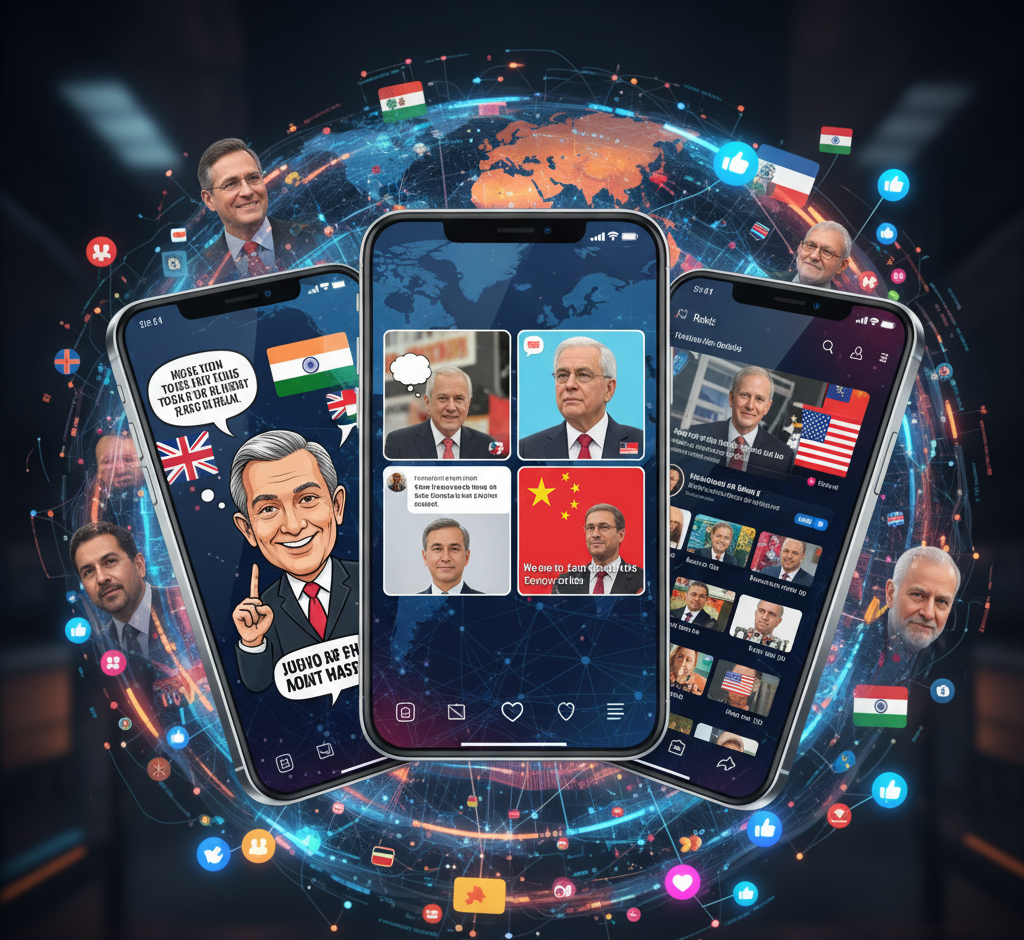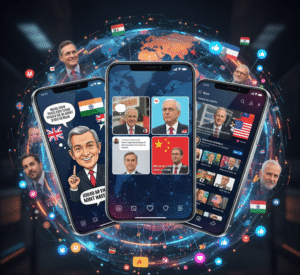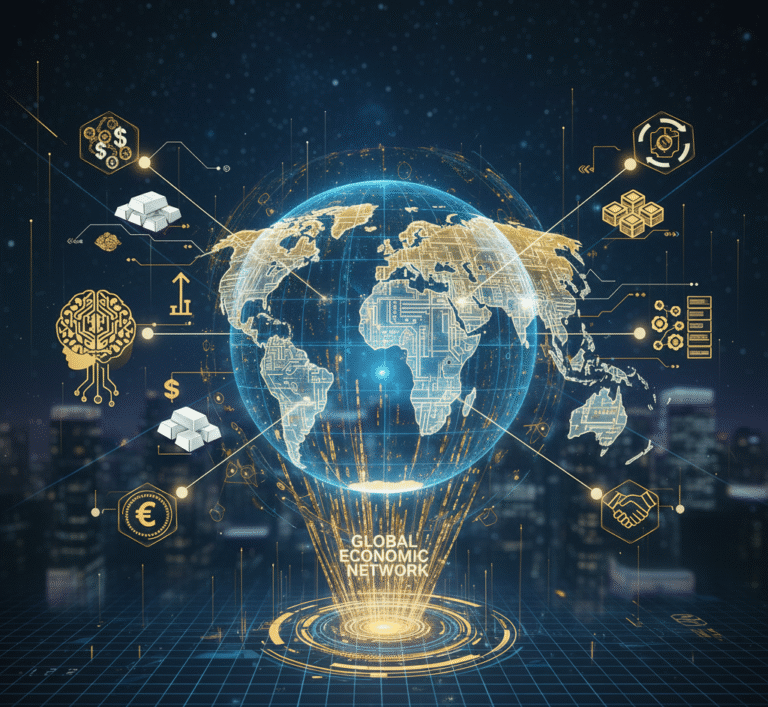
Meme-Diplomacy is reshaping how countries communicate and influence public opinion online
🌍 Meme-Diplomacy 2025: How Memes Are Redefining Modern Diplomacy
🌟 Introduction
Diplomacy once belonged to the corridors of embassies and political summits. But in 2025, diplomacy has found a new stage — the internet meme world.
From political humour on X (Twitter) to viral diplomatic satire on Instagram, memes have evolved into a powerful communication tool shaping international narratives.
This trend, often called “Meme-Diplomacy,” reflects how governments, politicians, and citizens use memes to express opinions, engage audiences, and influence perceptions — sometimes with humour, sometimes with mockery.
Let’s explore how this blend of humour and diplomacy is changing global politics, public relations, and the way nations communicate with each other.
💡 1. What Is Meme-Diplomacy? – meme-diplomacy-2025
Meme-Diplomacy refers to the use of memes, satire, and online humour as tools of communication and persuasion in international relations and political discourse.
It merges two worlds:
-
Diplomacy: The serious business of international negotiation and image-building.
-
Memes: Short, viral, humorous online content that spreads fast and influences opinion.
In short, it’s diplomacy with a digital twist — where gifs, jokes, and memes replace official press releases and long speeches.
🧠 2. The Rise of Diplomacy Memes – meme-diplomacy-2025
Over the last few years, memes have turned from jokes into soft-power weapons.
Examples include:
-
Embassies and government accounts posting funny reactions or cultural jokes.
-
Politicians being trolled or celebrated through viral memes.
-
Meme wars between rival political supporters or even nations.
From Russia vs Ukraine Twitter wars to India’s witty diplomatic memes, online humour now plays a part in international image management.
😄 3. Diplomatic Humour Online — A New Communication Strategy

Humour has always been part of diplomacy — subtle, polite, and strategic.
But in the age of social media, humour has gone digital.
Today’s diplomats and ministries use memes and funny posts to:
-
Build public engagement
-
Make political messages more relatable
-
Humanize state communication
-
Defuse tense global situations with light humour
For example, when a diplomatic mishap happens, memes can calm the storm — or sometimes, make it worse.
📲 4. Viral Political Memes — When the Internet Reacts
The internet is the biggest political stage of our time.
Whenever a Prime Minister, President, or global leader makes a statement or commits a gaffe, memers react instantly.
Whether it’s:
-
A cockpit announcement meme mocking a leader’s flight speech
-
A viral clip edited into hundreds of remixes
-
Or a meme war between fans and critics
The result is the same — public diplomacy becomes public entertainment.
These memes can boost popularity, embarrass leaders, or spark serious political debates.
⚔️ 5. Meme Wars: When Humour Turns into Digital Conflict – meme-diplomacy-2025
“Meme War” is a real phenomenon in modern politics.
It happens when different political or national groups flood the internet with memes to:
-
Promote their side
-
Mock opponents
-
Influence public perception
From US elections to India–Pakistan cricket memes, humour becomes a soft battlefield.
Diplomatic tensions sometimes even escalate online before being addressed officially.
🎭 6. Satire Diplomacy — The Art of Political Mockery
Satire Diplomacy is another branch of Meme-Diplomacy — where humour becomes a form of criticism.
Memes satirize:
-
Leaders’ behaviour
-
Diplomatic double standards
-
Propaganda statements
-
Policy failures
They deliver political commentary in an easily digestible form — funny yet powerful.
For instance, diplomatic satire memes about climate hypocrisy or failed peace talks can go viral globally within hours, influencing public opinion more effectively than official news releases.
Electric Gadgets Offer 2025: Hottest Smart Gadget Deals
⚡ Electric Gadgets Offer 2025: Best Smart Gadget Deals, Discounts, and Flash Sales in India
In 2025, technology and innovation are at their peak — and so are the electric gadget offers.
From smartwatches to VR headsets, and from wireless chargers to electric scooters, this year’s Electric Gadgets Sale 2025 is offering unbelievable discounts.
https://techblogs360.com/electric-gadgets-offer-2025/
💬 7. Memetic Engagement: How Governments Use Memes – meme-diplomacy-2025
Yes — even official government accounts now use memes.
This is called Memetic Engagement, where public diplomacy adopts the language of the internet.
Governments use memes to:
✅ Promote cultural pride
✅ Strengthen international ties
✅ Reach young audiences
✅ Build emotional connection with citizens
For example:
-
The US Embassy in Seoul posted memes celebrating K-pop and cultural friendship.
-
Indian government handles have used witty posts to promote cleanliness and vaccination drives.
Humour becomes a bridge, not just between nations, but between governments and people.
🧩 8. The Psychology Behind Meme-Diplomacy
Why do memes work so well in diplomacy?
Because they are:
-
Emotional: They trigger laughter, empathy, or anger.
-
Fast: They spread instantly.
-
Visual: They communicate across languages.
-
Shareable: They engage millions organically.
In today’s attention economy, a meme can reach more people than a press conference ever could.
🗣️ 9. The Internet Reacts — The Memers’ Role in Politics
Modern diplomacy isn’t shaped only by politicians — but also by memers.
Every major event — from summits and visits to viral gaffes — gets an instant reaction online.
Sometimes, memes even influence mainstream news.
What starts as a joke on Reddit or Instagram becomes a trending headline within hours.
This new ecosystem gives ordinary citizens a digital voice in global affairs.
🔥 10. Meme Backlash: When Humour Crosses the Line
Of course, meme-diplomacy can backfire.
Common reasons for backlash include:
❌ Offensive humour
❌ Cultural insensitivity
❌ Mocking tragic events
❌ Disrespecting leaders or flags
A meme gone wrong can create international tension — proving that in diplomacy, even humour must be carefully curated.
📉 11. Memes vs Protocol — The Formality Challenge
Diplomacy traditionally runs on etiquette, neutrality, and protocol.
Memes, on the other hand, are chaotic, sarcastic, and informal.
This clash between seriousness and satire often creates tension.
While young diplomats see memes as a modern PR tool, traditional diplomats still view them as undermining diplomatic dignity.
🌐 12. Digital Diplomacy and Meme Influence
Digital diplomacy — the use of digital media to promote diplomatic goals — now relies heavily on internet culture.
Meme-based communication helps states appear:
✅ Youthful and modern
✅ Culturally aware
✅ Emotionally intelligent
But it also increases the risk of misinterpretation, as humour doesn’t always translate well across cultures.
📸 13. Public Diplomacy Through Jokes
Meme-Diplomacy represents a new kind of Public Diplomacy — one based on authentic humour and relatable emotion, not just official messaging.
Humour humanizes leaders, breaking barriers between citizens and politicians.
When done well, memes become tools of connection; when done poorly, they become weapons of ridicule.
🧭 14. Memes in Foreign Policy — A Soft Power Tool
Memes are now part of soft power strategy — shaping how a country is perceived globally.
Countries known for wit and creativity (like the UK, India, and Japan) gain cultural respect through meme-based engagement.
Meanwhile, memes mocking rival nations’ actions act as subtle propaganda tools, framing global narratives in favour of one side.
⚖️ 15. The Thin Line Between Satire and Diplomacy
Meme-Diplomacy requires delicate balance — too much humour, and diplomacy looks unserious; too little, and it feels outdated.
Smart diplomats use humour to ease tensions, not to mock adversaries.
The goal is to spark dialogue, not division.
📊 16. Examples of Meme-Diplomacy in Action
-
🇮🇳 India’s witty diplomatic posts — subtle humour during cricket tournaments.
-
🇺🇸 U.S. Embassy memes — celebrating cultural connections with humour.
-
🇪🇺 EU accounts using memes — to simplify complex policy topics.
-
🇷🇺 Russia-Ukraine meme war — a modern example of information warfare using humour.
Each example shows how memes, satire, and humour are reshaping how nations communicate with global audiences.
🔮 17. The Future of Meme-Diplomacy
The future will see more:
⚡ AI-generated political memes
⚡ State-run meme campaigns
⚡ Diplomatic humour influencers
⚡ Virtual meme summits and digital dialogues
In a world run by attention and algorithms, memes will be the language of diplomacy.
They’ll define how nations connect, debate, and even reconcile — one laugh at a time.
💭 Conclusion — The Power of Humour in Global Politics
Meme-Diplomacy proves one thing:
Humour isn’t the enemy of diplomacy — it’s its most relatable form.
From political satire to viral jokes, memes are changing how the world sees its leaders.
They can make diplomacy funny, honest, and human again — but only if used wisely.
Because in the end, a single meme can achieve what a thousand speeches cannot:
it makes people care, laugh, and think — all in one scroll.





Alright, hitting up VegasPlusCasinoLogin. Found the login process super smooth, no hassle at all. Got straight into the action! The game selection is solid. Hoping for some Vegas luck here! Check out vegaspluscasinologin if you want to try your luck!
Finding a reliable link to W88 can be a hassle. linhvaow88 appears to be a pretty straightforward solution. Hopefully, keeps me connected! This takes you to linhvaow88.
I don’t think the title of your article matches the content lol. Just kidding, mainly because I had some doubts after reading the article.
Thank you for your sharing. I am worried that I lack creative ideas. It is your article that makes me full of hope. Thank you. But, I have a question, can you help me? https://www.binance.info/pl/register?ref=UM6SMJM3
Just cruised through s666welcome. Not gonna lie, it caught my eye. Lots of interesting stuff. Worth a deeper dive, fo shizzle.
Thanks for sharing. I read many of your blog posts, cool, your blog is very good.
J77Slot, a slot site. Hope to find some spinning action. Can’t wait to try out those reels! Hit those reels here: j77slot
Thank you for your sharing. I am worried that I lack creative ideas. It is your article that makes me full of hope. Thank you. But, I have a question, can you help me? https://accounts.binance.com/hu/register-person?ref=IQY5TET4
Your point of view caught my eye and was very interesting. Thanks. I have a question for you.
Thank you for your sharing. I am worried that I lack creative ideas. It is your article that makes me full of hope. Thank you. But, I have a question, can you help me?